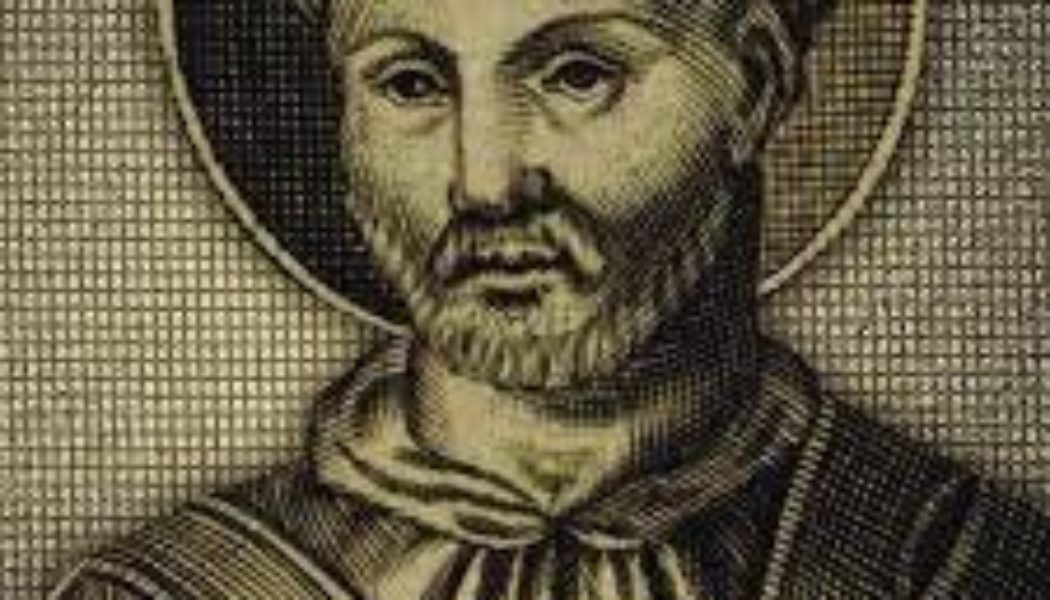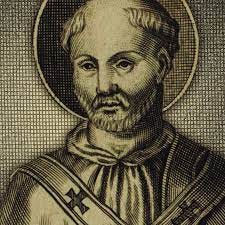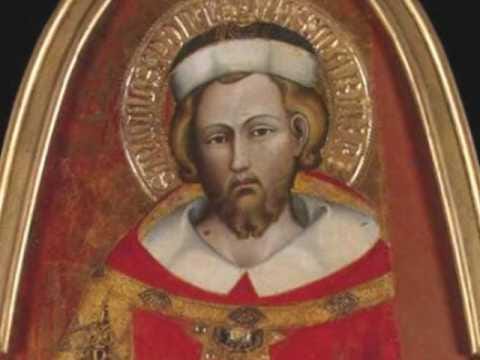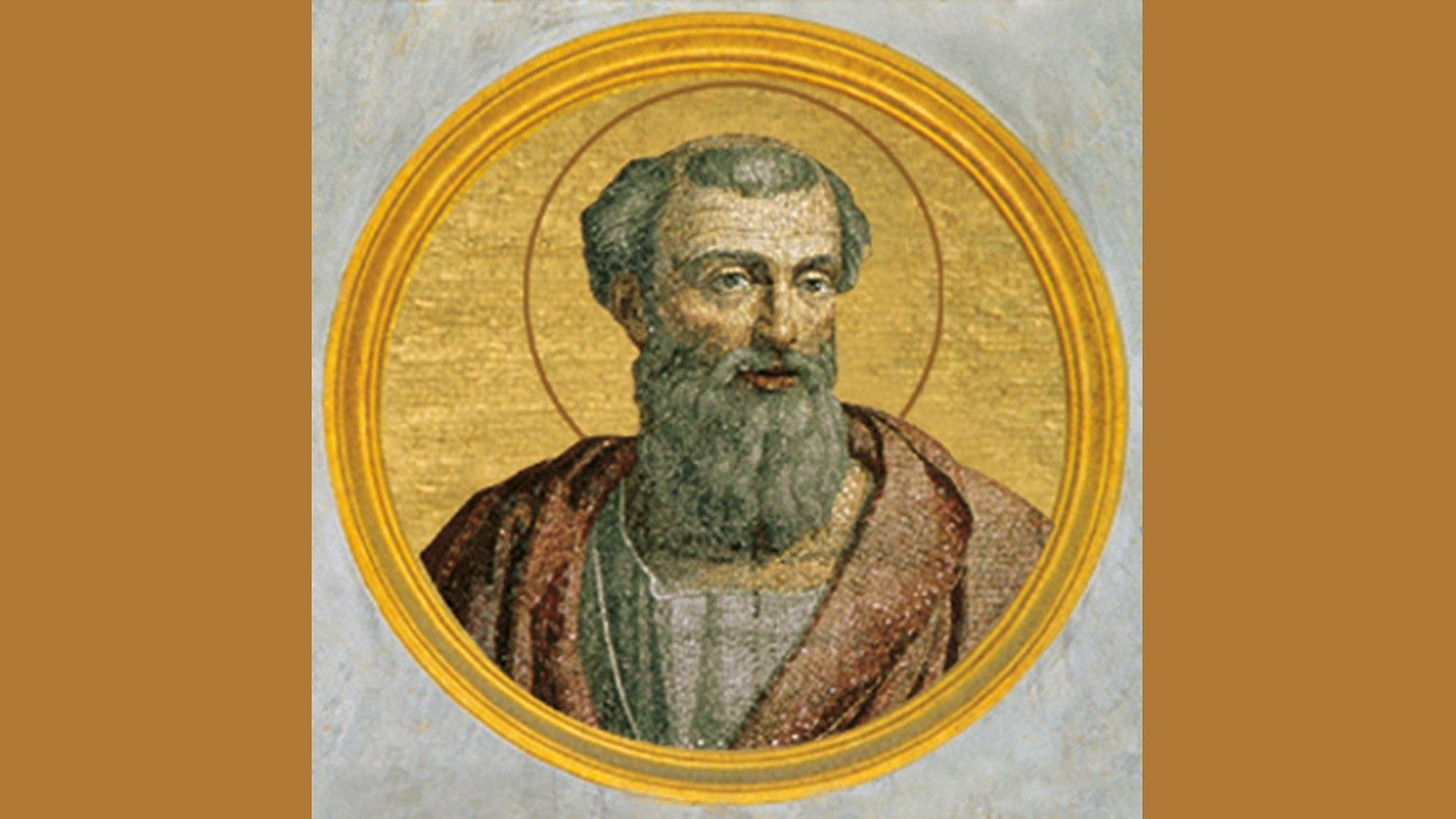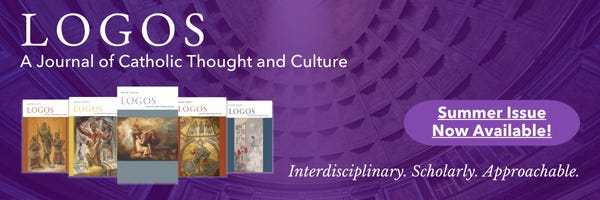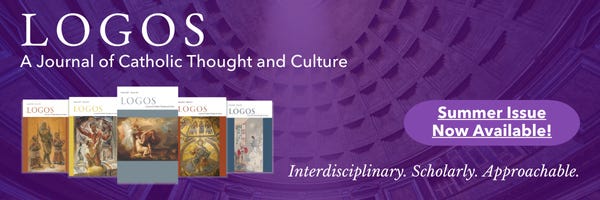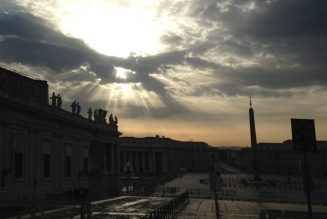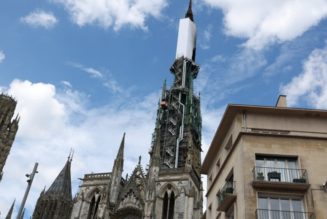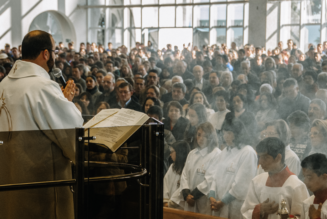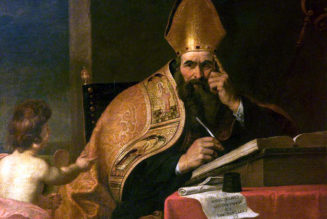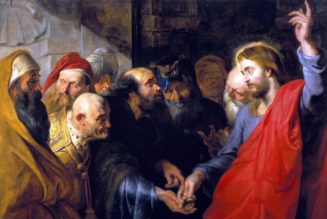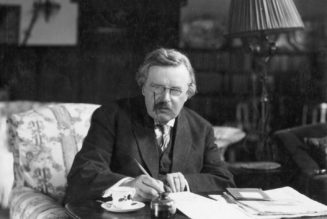Pillar subscribers can listen to this Pillar Post here: The Pillar TL;DR
Hey everybody,
Today is the memorial of Pope St. Pontian, who reigned — and was killed — during a third century persecution of Christians in the Roman Empire —- along with the martyr priest Hippolytus.
Pontian’s pontificate started out ok — the Church was not persecuted by the emperor Severus Alexander, who led the Roman Empire until 235. But in 235, Severus was murdered, and succeeded by Maximus Thrax, a military man, who hated Christians, according to historians.
Pontian, along with other Christians in Rome, was exiled to work as a slave in the gold, lead, and silver mines of Sardinia.
Knowing he wouldn’t make it home, Pontian resigned his office as Bishop of Rome, becoming the first person to resign the See of Peter.
By many accounts, Pope St. Pontian was beaten to death just a few weeks after he arrived in the mines.
Since then, as many as 10 more popes have resigned the office, though the historical record is hazy on a few of those.
In any event, Pontian’s feast seems the right occasion to pray for the souls of resigned popes, for Pope Francis, the man who now occupies the office, and for those who, like Pontian, are forced into slavery, even unto today.
One other thing. I’ve found three competing depictions of Pope St. Pontian.
In one, he’s got kind of a lame beard.
In another, he’s got a decent beard.
And in the third, his beard is truly magnificent.
I’m sure you can guess which one I hope is real.
The news
Over the next year, five metropolitan archbishops in Brazil will turn 75, the customary retirement age for bishops — and one more diocesan archbishop is still serving at 78.
Brazil’s episcopal conference could see a big reshaping if those guys are replaced by younger bishops. And the appointments will come as the Brazilian Church faces the challenge of rapidly growing evangelical Pentecostalism — with the number of Pentecostal and other evangelical ecclesial communities growing in Brazil by about 300% over the past two decades.
So what will happen with the country’s episcopate? Read all about it.
—
Meanwhile, in Brazil’s southern neighbor Argentina, a serious decline in priestly vocations will have a big impact on the Church for decades to come.
In 1990, there were 2,260 seminarians in Argentina. Today, there are around 800.
In 1997, there were 256 new diocesan seminarians in the country — this year, there are 57 new diocesan seminarians.
So what’s going on? Why the decline? And what does it mean for the future?
Edgard Beltran reports on a familiar story — vocational decline — with some unique Argentine twists.
But in recent years, his leadership has been challenged by the Russian Orthodox Church, amid a split over the status of the Church in Ukraine.
Bartholomew talked with The Pillar this week about that split, the war in Ukraine, and his hopes for concrete ecumenical progress with Pope Francis.
It’s a fascinating conversation with a global Christian leader, and you should read it.
For more than 25 years, Logos has served as an interdisciplinary meeting point for scholars and readers to engage with the beauty, truth, and vitality of Christianity as it is rooted in and shaped by Catholicism. Published by the Center for Catholic Studies, University of St. Thomas (MN).
Cardinal Pietro Parolin had a conversation Monday with new Iranian President Masoud Pezeshkian.
Parolin cautioned Pezeshkian against any actions that would escalate war in the Middle East, while keeping the lines of communication open with the Iranian government.
It’s a complex relationship the Holy See has with Iran. And some might wonder why — and how — the Vatican invests in a relationship with a country that the U.S. cut ties with in 1980 and categorizes as a state sponsor of terrorism.
How does that work? What good does it do? The Pillar’s Luke Coppen dives in.
While Archbishop Vincenzo Paglia says the text is meant to cut through jargony confusion and offer real guidance, others have said it doesn’t align with other Church teaching documents — and even some secular ethicists say it falls short of making a case for human dignity.
The document — the “Little Lexicon on the End-of-Life” — has made a lot of headlines. But understanding the controversy is important.
So moral theologian Charlie Camosy analyzes this week what the “Little Lexicon” says, what it doesn’t, and why so many people are concerned.
‘Sickness may serve him’
In The Tuesday Pillar Post last week, I wrote that my son Max had been very sick with pneumonia, and was not getting better. On Friday, Ed told you that Max was admitted to the hospital Tuesday night.
Max remains in the hospital, slowly recovering from pneumonia.
When we brought him to the ER last Tuesday, things were dire. We wondered seriously whether we might lose our sweet boy, as he struggled to catch even one breath.
A week later, things have improved — Max still needs oxygen assistance to breathe, and we’re still doing chest x-rays and respiratory therapy, but he’s on the upswing. Kids with Down syndrome take a long time to recover from pneumonia, and Max is proving to be no exception.
Tomorrow, Aug. 14, is Max’s feast day — the feast of St. Maximilian Kolbe. I’m hopeful that we might bring him home then. If not, I assume we might bring him home on Thursday, the 15th.
Many of you know that it’s hard to be in the hospital with a sick kid.
I’ve been here since Saturday, while Kate is at home with Pia and Daniel. I expected that I would be working last week, and this week, but I’ve really struggled to get very much done. I worked for about two hours yesterday on an important bit of reporting I had hoped to publish already, but the rest of the day was consumed by the aforementioned x-ray (a several hour process) and by the little things that occupy a day’s residence in the hospital.
So I apologize that the stuff I report at The Pillar is slowgoing. I also want to thank you for reaching out — hundreds of you, actually, to promise prayers and Masses. Thank you.
—
Last night, at 3:00 am, Max needed to get poked and prodded with needles for a bit (I’m not clear why the doctor decided that was the right time). He struggled a lot. He wailed. I held him, and comforted him. And I encouraged him to bring all that suffering to Jesus. I urged him to put it on the cross.
Really, that’s all any of us can do.
Especially when the Lord proves to have a sense of humor.
What do I mean? Well, with Max in the hospital, Pia woke up yesterday morning with a fever and a cough. She came home from the doctor that afternoon with a prescription for antibiotics, and a probable diagnosis of pneumonia. Really. Honest to God, all we can do is laugh.
The cross is where the Lord is. And the Lord, as Newman says, “knows what he is about.”
“I have my mission. I may never know it in this life, but I shall be told it in the next. I am a link in a chain, a bond of connection between persons,” Newman wrote.
“He has not created me for naught. I shall do good; I shall do His work. I shall be an angel of peace, a preacher of truth in my own place, while not intending it if I do but keep His commandments.”
“Therefore, I will trust Him, whatever I am, I can never be thrown away. If I am in sickness, my sickness may serve Him, in perplexity, my perplexity may serve Him. If I am in sorrow, my sorrow may serve Him. He does nothing in vain. He knows what He is about. He may take away my friends. He may throw me among strangers. He may make me feel desolate, make my spirits sink, hide my future from me.”
“Still, He knows what He is about.”
Anyway, thanks for the prayers. They mean a lot. And thanks for your patience as I try to return to my duties in The Pillar’s newsroom. I am eager for things to be normal, and to get back to work. And I am so grateful for the subscribers of The Pillar, through whom we have support, friendship, and health insurance, all of which we’ve sorely needed this week.
Please be assured of our prayers, and please pray for us. We need it.
Yours in Christ,
JD Flynn
editor-in-chief
The Pillar
For more than 25 years, Logos has served as an interdisciplinary meeting point for scholars and readers to engage with the beauty, truth, and vitality of Christianity as it is rooted in and shaped by Catholicism. Published by the Center for Catholic Studies, University of St. Thomas (MN).
Comments 51
Services Marketplace – Listings, Bookings & Reviews
